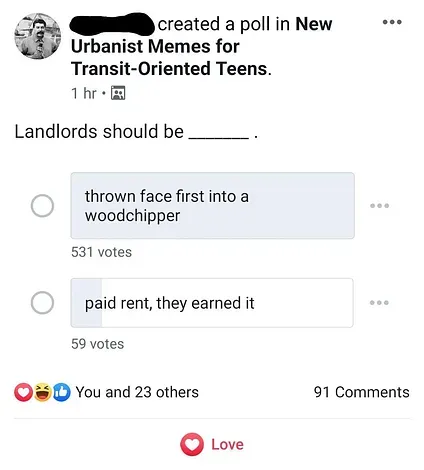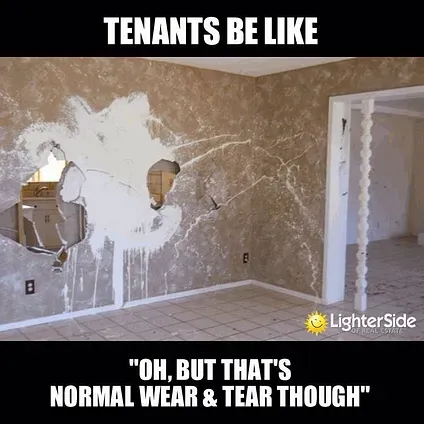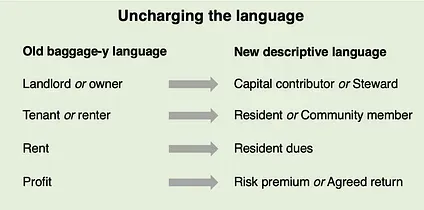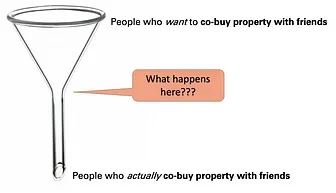What an outrageous suggestion. ABSOLUTELY OUTRAGEOUS.
Why would I give that jerk a tip?
Well, stay with me now….
You give your coffee shop a tip. You give your hairdresser a tip.. Why not your landlord? They are all just small business owners providing you an important service.
(Am I making you uncomfortable? Good, that's the point)
There are few relationships more historically fraught than landlord and tenant. All law presupposes that they are mortal enemies locked in a timeless battle. Tenant Law might as well start with "Well, landlords are greedy assholes, therefore..." Likewise, if you ever talk to anyone in the real estate industry they will assume only the worst in humanity out of any tenant.
Here's how the story goes:
Landlords try to get away with doing as little as possible. They are leeches trying to squeeze out as much as they can from hardworking people.
Tenants try to get away with paying as little as possible. They disrespect the property.
The whole dynamic is markedly toxic out of the gate. Coliving, in many ways, is an experiment in changing that.
The coliving context: What does it even mean to be a landlord or tenant?
Coliving projects challenge the toxic landlord/tenant paradigm. In some projects, the landlord and the tenants overlap. In other projects, the landlord is donating the property (or renting it out below market value). In others (e.g. cohousing), there is no landlord in the first place.
The terms lose a bit of their meaning in a coliving context. Unfortunately, despite this, the baggage often comes along with it. People bring their previous traumas and mistrusts, e.g. "my last landlord was shitty, therefore you are shitty." A lot of the hardest discussions at Radish (where the owners and residents overlap) spring from ingrained assumptions about how landlords and tenants behave in other (non-coliving) contexts. One minute you are friends, buying each other a $40 dinner. The next moment you are screaming at each other over who is going to pay $40 to fix the hole in the ceiling.
For coliving to work, it's critical to drop the landlord/tenant story and come up with your own version of the relationship. This post is about that deprogramming work, which I like to call ‘mutual disarmament.’
The Supernuclear 4 step guide to mutual disarmament of the tenant/landlord dynamic.

Step 1: Uncharging the language.

First step is dropping the baggage-laden labels.
Coliving is a project. Everyone is playing a role in the project. Putting up capital is a role in the project. Taking care of a property is one role in a project. Living in a community is a role in the project. Contributing rent is another role. The equation doesn't work without all of these things.
So don't call people names (landlord/tenant). The names come with a lot of inbuilt assumptions about how they should behave. Talk descriptively about the actual role they are playing.
Here is some suggested language to help lose the historical baggage:
Step 2: Make people both

This is the ol’ "walk a mile in someone else's shoe" thing
Have residents do typical owner things.
Have owners do typical resident things.
Try to have residents own a bit of the property, even if it’s small. This way they will think about how a decision or practice impacts capital contributors (something residents don’t often do). Have them deal with taking care of the property a bit. Much empathy can be gained from dealing with Home Depot's customer service line.
If capital contributors live at the property, it’s usually pretty easy for them to take the resident point-of-view. If they don’t, have them over. Have them cook and clean up. Invite them to stay over. Make sure they understand that the bathroom really does need a bit of a redo.
Step 3: Radical Transparency

Transparency is a two way street.
Capital contributors (owners) should share exactly how much money they are making.
Residents should be transparent when their plans impact the property or its capital contributors. The place where resident transparency most matters is notice period. Typical "tenants" never give more than 30 days notice. There's no incentive to ... just downside. But this puts a lot of strain on the owner. A resident in a supportive coliving community should be transparent, even if they haven’t figured everything out: "I might move out in the next few months, but I'm not sure."
Step 4: Do nice things for no good reason (aka "Tip your landlord")

Mutual disarmament means doing things when you don’t have to. It goes a long way toward thawing out the relationship.
Examples from residents (tenants):
"The wifi wasn't working, so I looked up the issue and managed to fix it"
"Can I invest?"
Examples for owners (landlords):
"Hi, it’s the time I’m supposed to raise rent, but vacancy has been low and we are getting enough return for our capital so we are not going to"
"We have some budget set aside for anyone who loses their job or faces economic hardship to defer their rent"
This stuff is obvious when it’s just people treating people well. We naturally know how to do that. But the second someone slaps a landlord or tenant table on their chest, we suddenly forget how to do this.
Let's talk about power
The mutual disarmament of the landlord/tenant relationship does not need to mean an equally powerful relationship. Not all good relationships need to have equal power. And ones that have unequal liability shouldn’t have equal power.
People who contribute a lot of capital or have their name on the loan often have a lot more skin in the game than people who simply live in a place month-to-month. It is not unreasonable to expect that the decision-making rights here would differ.
But we are familiar with this principle with friends. Such as "hey, do you mind not eating in my car?" The owner of the car has to drive it for the next 10 years. All the person eating in it now has to face is a little hunger until they get home.
Unequal power doesn't mean that one side is oppressing the other side or one side is deserving of anything. It's simply an agreement between two parties. I agree to put in capital, in exchange for that agreement you agree XYZ. Making crystal clear upfront agreements is a lot of the art to making this work.
Homework: Write a thank you note to your favorite landlord or tenant
Kristen and I recently wrote a thank you letter to the landlord at our first community at RGB (he was not a member of RGB, but leased to us). He was responsive, understanding, had excellent taste, and a lovely person. We realized, years later that in the midst of the usual tense rent negotiations etc, we never really had the impulse to thank him. So we wrote him a letter this week. He was a great landlord and anyone would be lucky to rent from him.
Is there a landlord or tenant you want to thank? Doing so would be so deliciously subversive.
Subscribe to Supernuclear
Launched 2 years ago
A guide to coliving
Based. All landlords should be tipped 15-20%. If that means I have to tip less for other services, so be it. |
Is this satire? |








 Publish on Substack
Publish on Substack